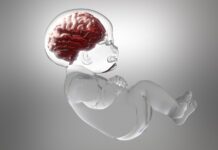Bilingualism boosts brain function and has even been linked to an ability to stave off dementia.
These first few years of heightened brain activity are, of course, the best time to learn an additional language. When raising a bilingual child, consistency is key: if, say, you are an English speaker and your partner is French, you should each communicate with your baby only in your own language.
Once she is between two and three years old she should be able to differentiate between the two languages and use them in the correct context. She may well favor one language over the other, probably the one that is shared between the parents, but you shouldn’t give up on speaking the other—your toddler will be absorbing it even if she is initially resistant to using it.
It is also important to respect the inherent cultural connections; songs and stories should be shared in both languages, if possible. Despite the fact that overall language development can often be slower for bilinguals, knowing how to speak two languages is actually highly beneficial for brain function.
Both these language systems are always active in the child even when only one is being used, so decisions constantly have to be made about which word to use in a particular context, giving the brain a regular workout. Once a child grows older and graduates into the teenage years, a kind of “pruning” process occurs in the brain.
Of the many vastly overproduced synapses, those that have proven less useful over the years will literally shrivel away, leaving only those nerve cells and connections that are vital in daily life to strengthen and remain readily available. There are easy ways to help your child’s brain to achieve its full potential. By simply showing love and affection, and offering plenty of positive stimulation, such as conversation and play, you will actually influence the chemistry of the developing brain.
Children learn through experience, so the best way to help your toddler improve her skills is by reading to her, talking to her, performing routines, exploring, and playing. However, trying to force development in a particular area can do more harm than good.
Children learn at their own rates—their brains are highly absorbent and programmed to learn without any particular intervention from an adult. All you need to do is be with them, love them, listen to them, and involve them in your life—and their smart, flexible little brains will take care of the rest.





















